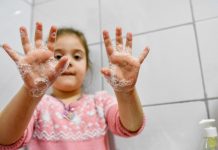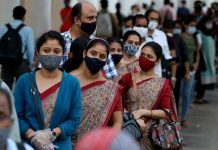Coronavirus is the latest near epidemic situation the world is facing right now. Every single day, a new addition is seen in the number of people affected and the information about it. This article will shed light on how to limit the risk of Coronavirus in the elderly. As the virus is relatively new and not everything about it is text booked or known, we will only put information that has been supported by evidence.
According to the WHO, Coronaviruses are a large family of viruses that cause illness ranging from the common cold to more severe diseases such as Middle East Respiratory Syndrome (MERS-CoV) and Severe Acute Respiratory Syndrome (SARS). A Novel Coronavirus (nCoV) is a new strain that has not been previously identified in humans (COVID-19).
Common signs of infection include:
- fever
- cough
- shortness of breath and
- breathing difficulties. In more severe cases, the infection can cause pneumonia, Severe Acute Respiratory Syndrome, kidney failure, and even death.
Like flu, it affects people that are immune-compromised; elderly those of which with diabetes, heart or lung diseases, and more.
The case fatality rate as collected from reliable sources is said to be around 15% in the elderly and 2.3% altogether. The age-wise incidence reported is around 1% for below 10 years of age. 90% of all cases are reported between age group 30 and 80. Besides being affected, the highest level of mortality has been reported in the age group above 80.
How to reduce risk factors in the elderly:
- Keep distance from high gathering places, avoid shaking hands, keep nose and mouth covered, and wash your hands as much as you can, especially after coming back from outside. Avoid touching your face, use shoulder or sleeve to itch or cover. Use protection and practice hygiene during all activities of daily living. Try and avoid infections of all kinds.
- Avoiding outdoors is a good idea; if it’s important, try covering your nose and mouth while coughing and sneezing. No study as yet recommends if Novel Coronavirus may or may not be protected from the use of masks. Avoid all contact from anyone who appears to be sick.
- Managing Indoors; keep indoors clean and dust-free with the help of wet mopping and vacuuming. Make sure all doorknobs and handles are (the place of most infection) kept clean. Use a disinfectant for all cleaning purposes.
- If you have not done it till now, STOP SMOKING already…avoid exposure of secondary smoke too. The smoke itself is full of tar and other toxic chemicals that may cause a weakened immune system and breathing distress.
- Include vitamin C in daily consumption; it helps strengthen your immune system. Take all your existing medications for heart, lungs, and sugar right on time.
- Keep a pocket-size sanitizer handy, use it.
- In case, you feel febrile with dry cough get yourself tested, other worry situations can be:
- Breathing distress
- Excessive fatigue and feeling of unwell
- Keep updating from reliable sites. Advisory by the State is the most important document that needs to be followed. Remember a lot of misconception and false information is in circulation on WhatsApp and Facebook. Make sure to double-check all the information before applying. Most importantly do not panic, keeping calm will set your mind straight and you will remember all the above measures.





























